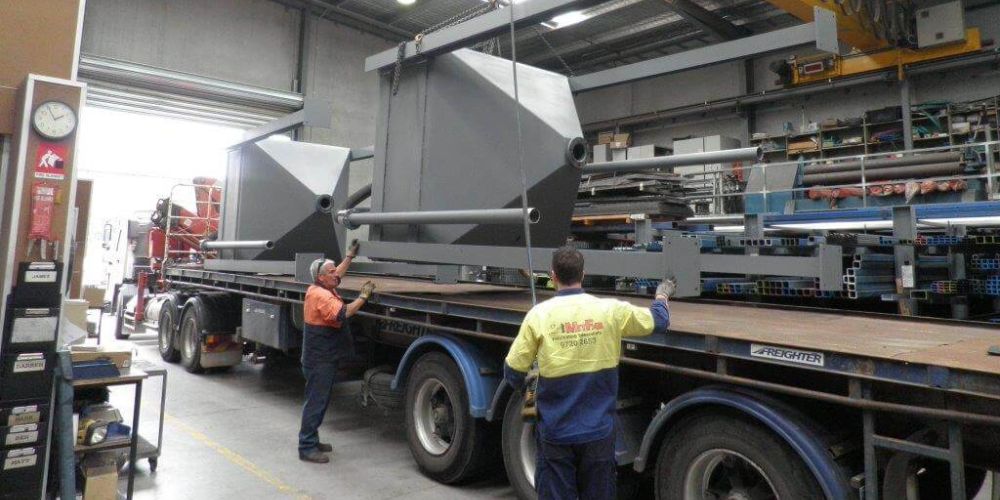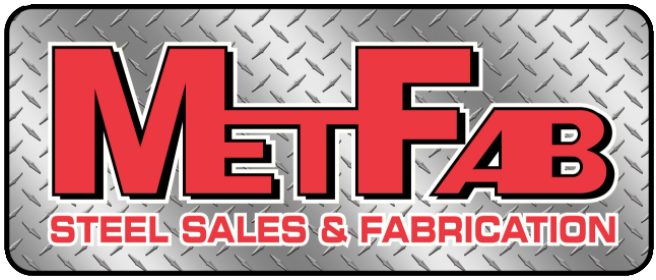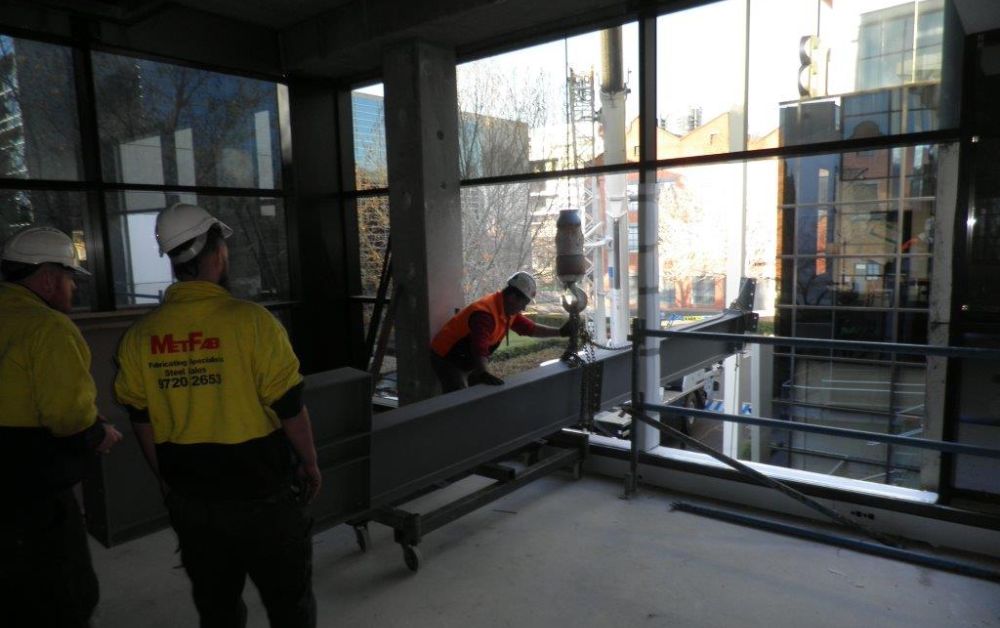Welder vs Metal Fabricator - When Do You Need Them?
In metal crafting, there's always confusion between welders and metal fabricators.
You might always be wondering: when do you need a welder? Or when do you need a metal fabricator? It's a bit like knowing when to use a hammer or a screwdriver – both have their place and picking the right one can make all the difference in the outcome.
Here's the scoop. Whether you want a custom-made backyard sculpture or are planning a home makeover, understanding the difference between these trades is like having a secret superpower in your toolkit.
Join us, and let's unravel the mystery and get to the bottom of this intriguing debate.
We have been dealing with them almost every day, and believe me when I say! We know the difference!
Grab your safety goggles, and let's get started!
Welder vs Metal Fabricators
Welders and metal fabricators perform different yet complementary roles in metalworking. It is crucial to comprehend the major distinctions between these two professions because they significantly affect the outcome of your project or career.
Let's examine the main differences between metal fabricators and welders.
Welders:
Welders are skilled professionals who use various welding processes to put metals together. Their primary duty is to form strong, long-lasting, and frequently permanent connections between metal components. Welders can work in various sectors, from construction and manufacturing to automotive and aerospace, where their welding skill is essential for structural integrity and safety.
Skills and Expertise
Welders are skilled in various welding techniques such as MIG, TIG, and stick welding and have a deep understanding of different metals' properties to choose the appropriate welding process and materials for each job. They prioritize safety and use protective gear to shield themselves from sparks and radiation. Achieving precise and uniform welds requires a steady hand and keen attention to detail. Welders also need problem-solving skills to troubleshoot challenging welding situations and ensure quality welds.
Typical Tasks
Metal fabricators cut, shape, assemble, customize, finish, and prototype metal pieces. They use various tools and techniques such as welding, bolting, and riveting to create custom products with protective and decorative finishes. They also prototype new products for testing and refinement.
Metal Fabricators
Metal fabricators are experienced specialists who deal with various metals to create a variety of goods ranging from industrial gear to elegant art pieces. Their major task is to convert raw metal resources into finished items that are useful or aesthetically beautiful. Metal fabricators frequently work closely with engineers, architects, and designers to make their ideas a reality. This position necessitates a combination of skill, technical understanding, and innovation.
Skill and Expertise
Metal fabricators use tools and machinery, such as shears, press brakes, rollers, plasma cutters, and laser cutters, to cut, bend, shape, and assemble metal components. They can read complex blueprints and technical drawings to fabricate precise and customized metal products. Many are skilled in welding techniques, such as MIG, TIG, or stick welding, to join metal components. Metal fabricators possess a sense of design and aesthetics, allowing them to create visually appealing and customized pieces. Achieving accurate measurements and quality finishes is crucial in metal fabrication, requiring meticulous attention to detail.
Typical Task
Metal fabricators select, cut, shape, bend, and assemble metal parts using various tools and machinery to create custom-made products. They also apply finishes to protect the metal and meet specific project requirements. In product development, they produce prototypes to test and refine designs before full-scale production. Quality control is also an important aspect of their work.
Education and Training
Welder:
There are no specific formal educational requirements in Australia to become a welder. However, most businesses prefer applicants who have at least finished high school or the equivalent.
Completing secondary school focusing on subjects like metalwork, engineering, or industrial arts can provide a strong foundation for a welding career.
However, according to seek.com, " To become a Welder you need to complete the Certificate III in Engineering – Fabrication Trade (MEM30305) and do your apprenticeship under the supervision of a qualified Welder."
Certification is optional in Australia, but we highly recommend it as it demonstrates a welder's competence and can improve job prospects.
Metal Fabricator
According to Victorian Skills Gateway, aspiring future metal fabricators should have:
- A Certificate III in Engineering - Production Systems
- Completed traineeship
- Completed a Victorian Certificate of Education (VCE) or equivalent
- Strong understanding of Mathematics and English
- Relevant traineeship such as Certificate II in Engineering - Production Systems
Tools and Equipment
Welder:
Welding requires a power source and torch to control the arc and direct filler material. At the same time, a ground clamp ensures safety. Protective equipment includes helmets, safety glasses, gloves, jackets, boots, and respirators or masks. Consumables used in welding include electrodes, wire, rods, filler metal, and shielding gas. Grinders, wire brushes, and abrasives prepare metal surfaces before welding and for finishing.
Metal Fabricators:
Cutting tools include plasma cutters, oxy-fuel cutting torches, circular saws, and shears. Bending and shaping equipment includes press brakes, rollers, hydraulic ironworkers, and tube benders. Metal fabricators may also use welding equipment such as machines, torches, and safety gear.
Work Environments
Welders:
Welders have some interesting workplaces. Some work on construction sites, creating gigantic metal puzzles to make things like buildings and bridges. They're like the glue that keeps everything together.
Then, some work in manufacturing plants. They work behind the scenes, welding metal components to build vehicles and equipment. They, like craftsmen, ensure that everything fits perfectly. Welders are the secret sauce in the aerospace and military industries. They assemble critical components for planes, spacecraft, and military vehicles to ensure strength and durability.
Metal Fabricators:
Metal fabricators are like metal magicians. They build incredible things out of metals such as steel, aluminium, and even copper. Consider them metal artisans; they take raw chunks of metal and turn them into useful or attractive items.
Consider a large workshop packed with interesting tools and machinery. Metal fabricators work their magic there. They have plasma cutters, which can slice through metal with a very hot beam, and press brakes, which allow them to bend metal into various forms.
Moreover, metal fabricators may work on a wide range of projects. Some work with architects to create elaborate railings and attractive stairs for structures. Others make machine parts or unique designs
Specializations and Career Paths
Welders:
Welders specialize in techniques such as MIG, TIG, and Stick welding. MIG welding uses wire electrodes and shielding gas for fast welding materials like steel and aluminium. TIG welding is precise and uses a non-consumable tungsten electrode for high-quality welds on various metals. Stick welding, also called SMAW, is versatile and ideal for outdoor or challenging environments and is commonly used in construction and repair.
Experienced welders can advance to supervisory roles and become welding inspectors, shop supervisors, or project managers. Some welders may specialize further in industries like aerospace, automotive, or pipeline welding for higher-paying and more specialized positions. Welders can also pursue certification from AWS or WTIA to enhance their credentials and job prospects.
Metal Fabricators:
Metal fabricators specialize in sheet metal fabrication, structural metal fabrication, or ornamental metal fabrication. Sheet metal fabrication involves creating products like HVAC systems, ductwork, and roofing materials. Structural metal fabrication involves constructing metal components for construction, bridges, and infrastructure projects. Ornamental metal fabrication involves crafting decorative and artistic metalwork such as gates, railings, sculptures, and custom furniture. Specialization depends on personal interests and industry or project preferences.
Metal fabricators can advance to higher roles like project managers or shop supervisors. They can also start custom fabrication studios specializing in ornamental or artistic metalwork. Experienced fabricators can become experts in their chosen specialization, gaining recognition and demand for their craftsmanship. Ongoing training and certifications in specialized areas like architectural metalwork or advanced welding techniques can lead to new career opportunities.

When Do You Need a Welder?
Putting Things Back Together:
When a metal object at home breaks, such as a lawnmower deck, a gate, or a bicycle frame, a welder may repair it and make it strong again.
Creating or Repurposing:
A welder may assist you with metal connections if you're working on a project that requires metal, such as creating a camper for your outdoor excursions or turning an old metal item into something new.
Working with Pipes:
A welder can securely weld metal pipes if you're undertaking plumbing or heating work, especially if you're working with metal pipes and need to establish new connections or repair old ones.
When Do You Need a Metal Fabricator?
Using Creativity
A metal fabricator can make your innovative metal project come to life, whether designing a special piece of furniture, fabricating a personalized metal sign for your house, or producing a one-of-a-kind metal sculpture for your garden.
Precise Cutting and Shaping
A metal fabricator could help you with these precise chores if you're working on a home improvement project that calls for precise cutting, bending, or shaping of metal, like making bespoke shelves, installing a chic metal railing for your staircase, or creating a unique bracket for hanging anything.
Home Improvements
A metal fabricator is your go-to professional if you're remodelling or improving your house and want to add attractive features, such as a beautifully designed metal gate for your driveway, an artistic balcony railing, or a sophisticated metal staircase.
FREQUENTLY ASKED QUESTIONS
Conclusion
To sum up, it all comes down to knowing who to contact if you have a metal-related job to complete. A welder is the expert you need when fixing broken items, constructing something robust, or working on pipelines. They are comparable to metal fixers.
Now, you should contact a metal fabricator if you're considering creating anything exceptional out of metal, such as a one-of-a-kind piece of furniture, or if you want accurate metal cutting and shaping. Your ideas can come to reality thanks to these metal artisans.
So remember that knowing who to call will guarantee that your project is completed correctly, whether you need welding or metal manufacturing. It all comes down to choosing the best specialist for the task at hand.


